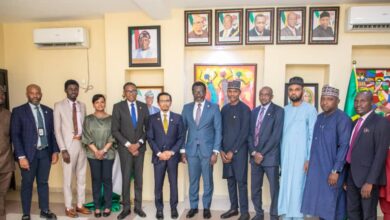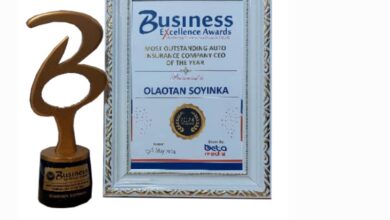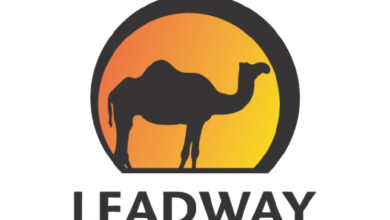Peeping Into The State Of Insurance In 2030 And Nigeria’s Effort To Bridge the Technology Gap

The adoption of technology solutions such as Artificial Intelligence (AI), to improve business operations, is expected to revolutionize the way insurance business is conducted by the year 2030, EDET UDOH writes.
McKinsey Financial Services, in its report, “Insurance 2030—The impact of AI on the future of insurance,” stated that Artificial Intelligence (AI) and its related technologies will have a seismic impact on all aspects of the insurance industry, from distribution to underwriting and pricing to claims.
According to the report, advanced technologies and data are already affecting distribution and underwriting, with policies being priced, purchased, and bound in near real-time. An in-depth examination of what insurance may look like in 2030 highlights dramatic changes across the insurance value chain.
The Nigerian insurance industry is working hard to bridge the technology gap, and this can be seen in the industry’s huge investment in technology.
Distribution
The experience of purchasing insurance is faster, with less active involvement on the part of the insurer and the customer. Enough information is known about individual behavior, with AI algorithms creating risk profiles, so that cycle times for completing the purchase of an auto, commercial, or life policy will be reduced to minutes or even seconds.
Auto and home carriers have enabled instant quotes for some time but will continue to refine their ability to issue policies immediately to a wider range of customers as telematics and in-home Internet of Things (IoT) devices proliferate and pricing algorithms mature.
Many life carriers are experimenting with simplified issue products, but most are restricted to only the healthiest applicants and are priced higher than a comparable fully underwritten product. As AI permeates life underwriting and carriers can identify risk in a much more granular and sophisticated way, we will see a new wave of mass-market instant-issue products.
Smart contracts enabled by blockchain instantaneously authorize payments from a customer’s financial account.
Meanwhile, contract processing and payment verification are eliminated or streamlined, reducing customer acquisition costs for insurers. The purchase of commercial insurance is similarly expedited as the combination of drones, IoT, and other available data provides sufficient information for AI-based cognitive models to proactively generate a bindable quote.
Highly dynamic, usage-based insurance (UBI) products proliferate and are tailored to the behaviour of individual consumers. Insurance transitions from a “purchase and annual renewal” model to a continuous cycle, as product offerings constantly adapt to an individual’s behavioural patterns.
Furthermore, products are disaggregated substantially into microcoverage elements (for example, phone battery insurance, flight delay insurance, and different coverage for a washer and dryer within the home) that consumers can customize to their particular needs, with the ability to instantaneously compare prices from various carriers for their individualized baskets of insurance products. New products emerge to cover the shifting nature of living arrangements and travel. UBI becomes the norm as physical assets are shared across multiple parties, with a pay-by-mile or pay-by-ride model for car sharing and pay-by-stay insurance for home-sharing services.
The role of insurance agents has changed dramatically by 2030. The number of agents is reduced substantially as active agents retire and remaining agents rely heavily on technology to increase productivity.
The role of agents transitions to process facilitators and product educators. The agent of the future can sell nearly all types of coverage and adds value by helping clients manage their portfolios of coverage across experiences, health, life, mobility, personal property, and residential.
Agents use smart personal assistants to optimize their tasks as well as AI-enabled bots to find potential deals for clients. These tools help agents to support a substantially larger client base while making customer interactions (a mix of in-person, virtual, and digital) shorter and more meaningful, given that each interaction will be tailored to the exact current and future needs of each client.
Underwriting and pricing
In 2030, underwriting as we know it today ceases to exist for most personal and small-business products across life and property and casualty insurance. The process of underwriting is reduced to a few seconds as the majority of underwriting is automated and supported by a combination of machine and deep learning models built within the technology stack.
These models are powered by internal data as well as a broad set of external data accessed through application programming interfaces and outside data and analytics providers. Information collected from devices provided by mainline carriers, reinsurers, product manufacturers, and product distributors is aggregated in a variety of data repositories and data streams. These information sources enable insurers to make ex-ante decisions regarding underwriting and pricing, enabling proactive outreach with a bindable quote for a product bundle tailored to the buyer’s risk profile and coverage needs.
Regulators review AI-enabled, machine learning–based models, a task that requires a transparent method for determining the traceability of a score (similar to the rating factor derivations used today with regression-based coefficients). To verify that data usage is appropriate for marketing and underwriting, regulators assess a combination of model inputs.
They also develop test policies for providers when determining rates in online plans to ensure the algorithm results are within approved bounds. Public policy considerations limit access to certain sensitive and predictive data (such as health and genetic information) that would decrease underwriting and pricing flexibility and increase anti-selection risk in some segments.
Price remains central in consumer decision-making, but carriers innovate to diminish competition purely on price. Sophisticated proprietary platforms connect customers and insurers and offer customers differentiated experiences, features, and value.
In some segments, price competition intensifies, and razor-thin margins are the norm, while in other segments, unique insurance offerings enable margin expansion and differentiation. In jurisdictions where change is embraced, the pace of pricing innovation is rapid.
Pricing is available in real-time based on usage and a dynamic, data-rich assessment of risk, empowering consumers to make decisions about how their actions influence coverage, insurability, and pricing.
Claims
Claims processing in 2030 remains a primary function of carriers, but more than half of claims activities have been replaced by automation. Advanced algorithms handle initial claims routing, increasing efficiency and accuracy.
IoT sensors and an array of data-capture technologies, such as drones, largely replace traditional, manual methods of first notice of loss. Claims triage and repair services are often triggered automatically upon loss. In the case of an auto accident, for example, a policyholder takes a streaming video of the damage, which is translated into loss descriptions and estimated amounts.
Vehicles with autonomous features that sustain minor damage direct themselves to repair shops for service while another car with autonomous features is dispatched in the interim. In the home, IoT devices will be increasingly used to proactively monitor water levels, temperature, and other key risk factors and will proactively alert both tenants and insurers of issues before they arise.
Automated customer service apps handle most policyholder interactions through voice and text, directly following self-learning scripts that interface with the claims, fraud, medical service, policy, and repair systems.
The turnaround time for the resolution of many claims is measured in minutes rather than days or weeks. Human claims management focuses on a few areas: complex and unusual claims, contested claims where human interaction and negotiation are empowered by analytics and data-driven insights, claims linked to systemic issues and risks created by new technology (for example, hackers infiltrate critical IoT systems), and random manual reviews of claims to ensure sufficient oversight of algorithmic decision making.
Claims organizations increase their focus on risk monitoring, prevention, and mitigation. IoT and new data sources are used to monitor risk and trigger interventions when factors exceed AI-defined thresholds. Customer interaction with insurance claims organizations focuses on avoiding potential loss. Individuals receive real-time alerts that may be linked with automatic interventions for inspection, maintenance, and repair.
For large-scale catastrophe claims, insurers monitor homes and vehicles in real-time using integrated IoT, telematics, and mobile phone data, assuming mobile phone service and power haven’t been disrupted in the area. When the power goes out, insurers can profile claims by using data aggregators, which consolidate data from satellites, networked drones, weather services, and policyholder data in real-time.
In Nigeria, Insurers have made huge investments in technology to ensure service efficiency and effectiveness as well as drive the industry’s growth. The industry is also taking advantage of various applications such as AI to effectively harness its operations.
The immediate past Commissioner for Insurance/CEO, the National Insurance Commission (NAICOM), Mr. Sunday Olorundare Thomas, has said that artificial intelligence is key to the future of the insurance business in Nigeria.
He said this in his keynote address at the 8th National Conference of Business Today held in Lagos with the theme “The World of AI: How Insurance And Pension Sectors Can Explore Opportunities For Market Penetration.”
Thomas who was represented at the conference by the Deputy Director, Lagos Office of NAICOM, Ajibola Olabisi Bankole, urged insurance operators to increase adoption in this area as it gives better productivity and enhances profitability while ensuring quick service delivery and claims payment to insurance consumers.
Technology adoption, he said, is part of the 10-year roadmap of the insurance industry, stating that, NAICOM, as a regulator, will continue to evolve policies that will engender the growth of the industry, and increase penetration and contribution to the nation’s GDP.
Earlier in his Goodwill message at the conference, the president, of the Chartered Insurance Institute of Nigeria(CIIN), Mr. Edwin Igbiti, said the growing insurance industry will require that the nation’s economy be derisked while seeking partnerships with government and other stakeholders to deepen insurance penetration.
He submitted that AI will increase insurance premium growth, enhance service delivery and ensure the insurance sector contributes more to the nation’s Gross Domestic Product (GDP).
Oxford Business Group (OBG) in its report titled “Nigeria’s Insurers Look to Digital Solutions to Boost Penetration” highlighted the level of improvement of technology-driven insurance adoption.
The report stated that the conditions for technology-led insurance adoption have continued to improve.
“As of the beginning of 2023, an estimated 122.5m Nigerians were using the internet and nearly 194m mobile phone connections. The number of mobile internet subscriptions stood at 152.2m as of October 2022, up 8.7% year-on-year compared to the 140m reported in October 2021 (see ICT chapter).
Nimbler operators are expected to lead the insurance industry’s technological evolution, with several fully digital players having entered the market.
Chief Executive Officer of a Lagos-based insurance broking firm, Post Assurance Brokers, Lekan Ajisafe told OBG that “Nigeria’s insurance sector has been upended by the global growth in digitalisation, meaning that investing in digital infrastructure has become imperative for companies to remain competitive.
“The digital adoption rate has been robust, permeating the entire value chain, and the regulators have taken the initiative by automating their portal.”
The report stated further that Nigerian start-up ETAP, which launched its beta mode in November 2021, lets users sign up for third-party auto insurance protection and file claims through a mobile app offering lower prices and rewards for drivers with good records.
“ETAP’s application uses machine learning to create risk profiles and customise insurance offerings for drivers. As of April 2022 ETAP had insured 130,000 car trips since its beta launch.
“Casava Microinsurance, a digital microinsurance provider, offers digital products for health insurance, income protection or credit insurance. The firm completed a pre-seed funding round in December 2021 and had 100,000 customers as of October 2022.
“By opting to interact digitally and using technology to customise products to each client, technology insurers are hoping to not only lower insurance costs but also eliminate the hurdles that often discourage potential customers from buying products from traditional insurers. Easy use and customised policies are likely to attract young Nigerians to new tech-based insurance products.
“The distribution of mobile insurance is another potential driver. Agriculture insurance, for instance, accounted for N4.4bn ($10m) in gross written premiums in 2019, according to the Nigerian Insurers Association (NIA).
“However, reinsurer Africa Re estimated that agriculture premium in Nigeria could eventually reach $600m. By leveraging distribution methods that do not depend on traditional brokers or face-to-face distribution channels, new technology insurers could facilitate insurance adoption in one of the country’s most critical sectors,” OBG stated in its report.
Regionally, according to the report, Nigeria’s digital insurance development is part of a broader trend in Africa, noting that many such companies are expanding across the continent, and they are often partnering with traditional insurance providers already in active in the market.
“In Mali, for example, OKO offers crop insurance to farmers, partnering with traditional insurance providers such as Allianz. Pula, another agriculture insurance provider, had operations in over 17 countries in Africa and Asia as of October 2021. Many other tech insurance firms are expanding their domestic reach,” OBG’s report stated.
For Nigerian insurance providers, this shows the fast changes brought about by mobile insurance offerings, as the ease of distribution through digital methods foreshadows growing competition between domestic and regional entities.





